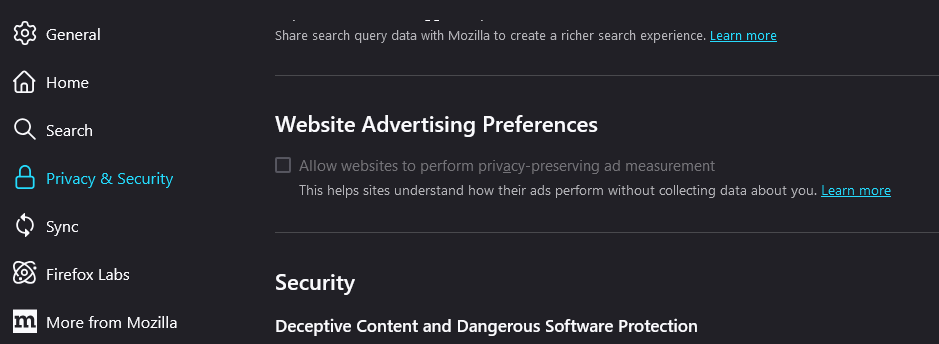

Their acquisition of Anonym was all about acquiring the feature this article is about, PPA. Anonym created PPA. In fact Anonym seems to have been created for the explicit purpose of creating this privacy-respecting system as an alternative to cross-site tracking cookies. I see no reason to doubt Mozilla’s intentions here.










Regardless of their motivations this seems like a big positive. Forced arbitration clauses should be illegal and unenforceable in any context where it isn’t customary for both parties to have legal counsel reading over the contract. And it’s appalling that waivers for class action lawsuits are legal at all.